How Safe Is Japan?
The word "Japan" brings to mind many things: high-tech, sushi, anime, samurai, and cherry blossoms. It is one of the most intriguing countries in...
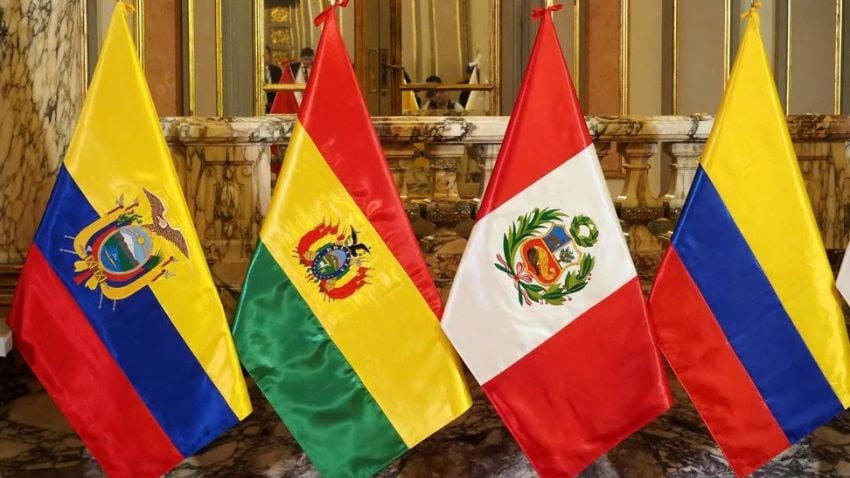
3 min read
Most people have heard of the Mercado Común del Sur, better known as Mercosur, but you might be surprised to learn that it was not the first regional pact in South America. In fact, it was predated by the Comunidad Andina (Andean Community in English) for over two decades. While smaller in scope than Mercosur, comprising four countries (Bolivia, Colombia, Ecuador, and Peru), both agreements were founded on similar principles, namely regional integration, promoting free trade, and harmonizing rules and procedures among the member states.
However, the Comunidad Andina (CAN) took the first step in establishing policies regarding freedom of movement. Starting in 2005, Andean Community citizens could travel freely among the four countries with just their national ID card. This would be superseded by the Mercosur residence agreement in 2010, which added further rights such as obtaining residency and working in any country throughout the bloc. While the Andean Community countries are members of Mercosur, there are some differences between the two. We will mostly cover the rules regarding immigration policies and how they are applied.
If you are interested in reading about the benefits of Mercosur citizenship, please read this article.
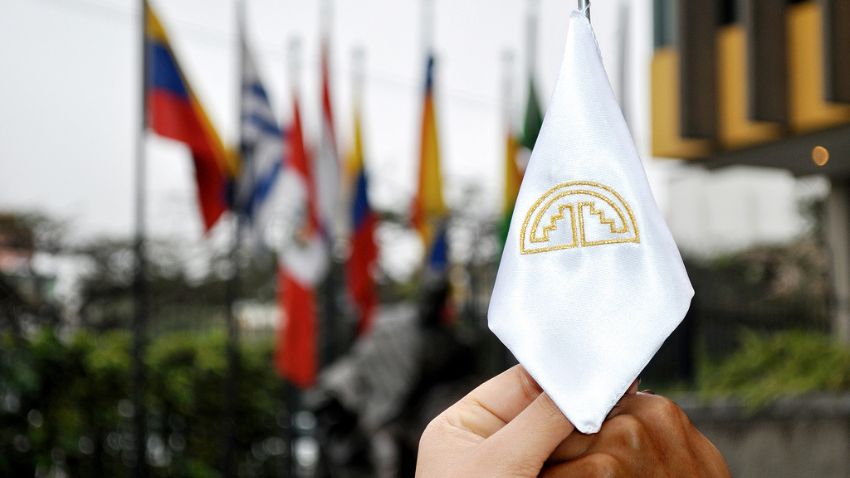
Flag symbol of the Andean Community
Citizens of the Andean Community are entitled to the following rights:
In short, citizens of the Andean Community can move about freely among the four member states with just their national ID card or cedula and stay for up to 90 days as a tourist, with the option to extend it to a total of 180 days in a calendar year. In addition, Andean Community and Mercosur citizens can obtain a two-year temporary residence permit and apply for permanent residency after 21 months. Becoming a resident means you have the right to work and access government benefits.
While North American and European nationals are usually not migrating to South America in search of employment, becoming a citizen of the Andean Community has some advantages. You can move about with just your national ID card, something that appeals to digital nomads and those who appreciate the freedom to move from country to country. For example, you can stay in Ecuador for six months, cross the border into Bolivia, Colombia, or Peru, and stay for another six months. It is worth mentioning this may afford potential tax savings, especially in Bolivia and Ecuador, where foreign-sourced income is not taxed.
The Andean Community residency agreement recently took effect in August 2021, but the countries have been working towards further integration and cooperation in other areas. Starting this year, they eliminated roaming fees, meaning you can use your domestic (postpaid) plan as you would in your home country when travelling throughout the Andean Community. Other areas of cooperation include establishing common rules for immigration procedures, such as crossing national borders in your vehicle.
Related article: The Basics of How To Get A Second Passport Or A Second Residency
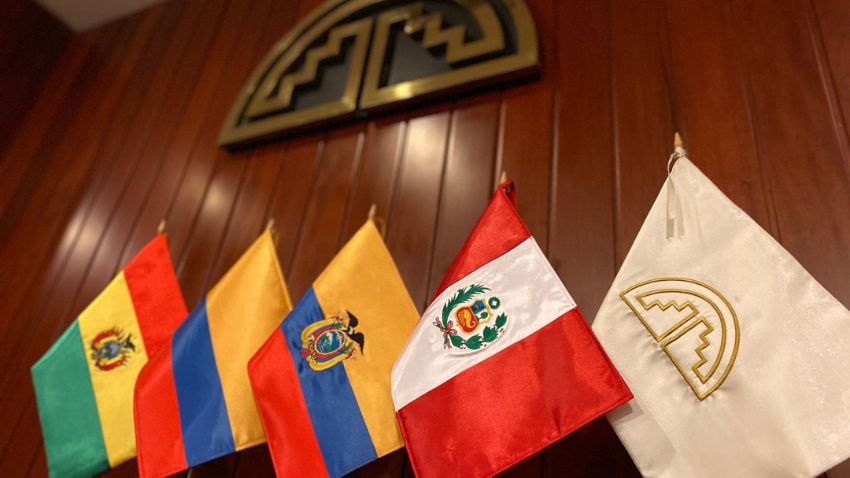
Member countries of the Andean Community and their flag
Andean Community citizens can obtain a two-year residency permit in other countries, and while the information below applies to Colombia, the procedure is the same for all countries:
After 21 months, you can apply for permanent residency but must repeat the steps mentioned above. Becoming a permanent resident also opens the door for citizenship should you be interested in pursuing that option.
You can always reach us to help you obtain a second residency or citizenship.
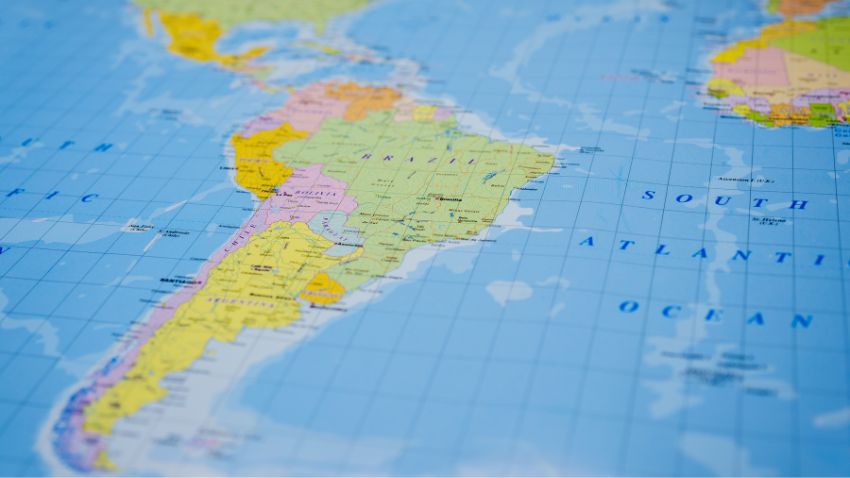
South America on the map
You probably wonder how they differ if you're familiar with the Mercosur residency agreement. In terms of mobility and obtaining residency, they are the same. You can travel between countries with your national ID card and stay up to 90 days. Likewise, you are afforded the same rights, such as obtaining residency, seeking employment, and equal treatment under national laws.
With that said, there are some differences between the two blocs. Mercosur is larger and includes most South American countries except Guyana, Suriname, and Venezuela (they were suspended in 2016). Also, some rules and procedures in Mercosur are open to interpretation and applied differently depending on the country, most notably, the definition of a citizen.
Argentina is a good example of this, with eligibility being dependent on your country of birth or naturalization. While anyone born in a Mercosur country can apply for residency, the benefit is only extended to naturalized citizens of Bolivia, Brasil, Chile, Paraguay, and Uruguay, and only after five years from the date of naturalization. On the other hand, Colombia and Ecuador make no distinction between native or naturalized citizens.
In contrast, legislation passed by the Andean Community is binding and must be applied uniformly by all countries. As for who is considered a citizen, it refers to the definition in the national constitution of each country, and a glance at Ecuador defines a citizen as one by birth or naturalization.
In the end, the Andean Community countries are members of Mercosur. If your reason for obtaining citizenship was being able to travel throughout South America, keep in mind this will take at least three years and possibly another five for eligibility under the Mercosur agreement.
As of this writing, there is no waiting period for the Andean Community. After becoming a citizen, you can freely move between Bolivia, Colombia, Ecuador, and Peru. You will need a passport to establish residency in any Andean Community or Mercosur country. The rules may change in the future, but the Andean Community has been working towards further integration. Obtaining citizenship in Mercosur or the Andean Community has benefits, but that will mostly depend on your long-term goals.
If you want the best intel from the expat world, including profitable offshore opportunities, little-known tax-saving strategies, and hard-won insights on immigration, passports, and Plan-B residencies, all delivered to your inbox every single week, then join our daily correspondence, EMS Pulse®. Currently enjoyed by over 84,000 expats and expat-hopefuls worldwide. Fill in the form below to join our newsletter free:

Written by Mikkel Thorup
Mikkel Thorup is the world’s most sought-after expat consultant. He focuses on helping high-net-worth private clients to legally mitigate tax liabilities, obtain a second residency and citizenship, and assemble a portfolio of foreign investments including international real estate, timber plantations, agricultural land and other hard-money tangible assets. Mikkel is the Founder and CEO at Expat Money®, a private consulting firm started in 2017. He hosts the popular weekly podcast, the Expat Money Show, and wrote the definitive #1-Best Selling book Expat Secrets - How To Pay Zero Taxes, Live Overseas And Make Giant Piles Of Money, and his second book: Expats Guide On Moving To Mexico.
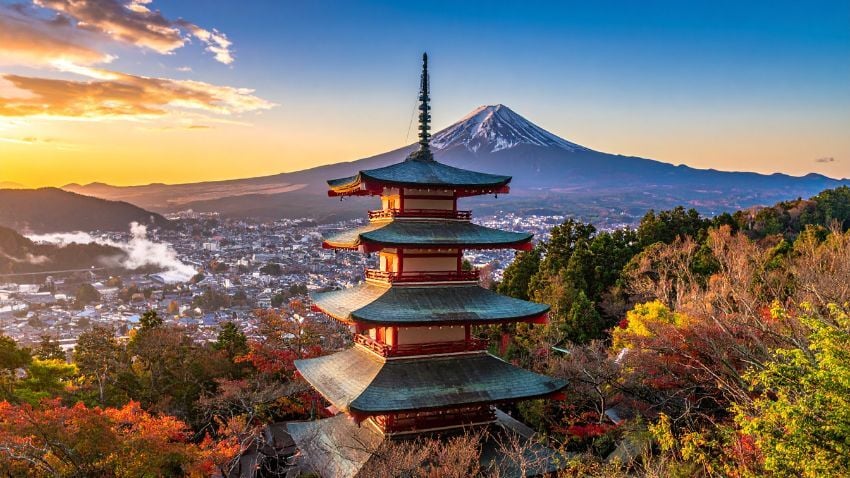
The word "Japan" brings to mind many things: high-tech, sushi, anime, samurai, and cherry blossoms. It is one of the most intriguing countries in...
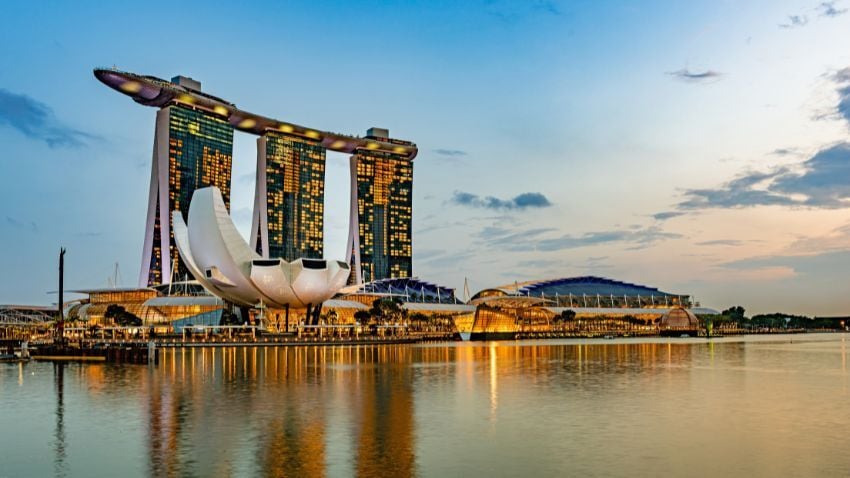
Singapore is often described as a city that works, and it totally deserves its reputation. This small island nation in Southeast Asia has built one...

Panama’s geographic size is modest, but its global relevance is not. The country connects two oceans and two continents, operates on a dollarized...